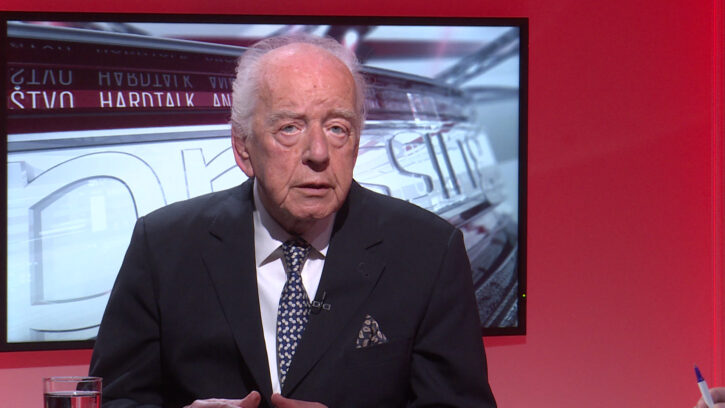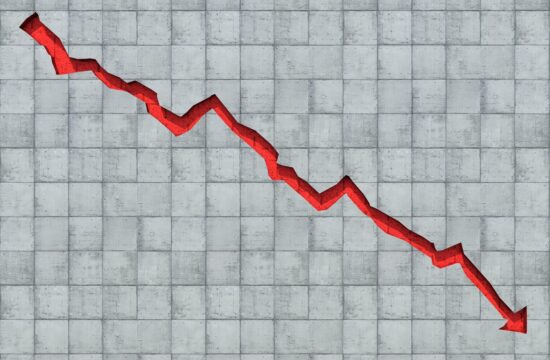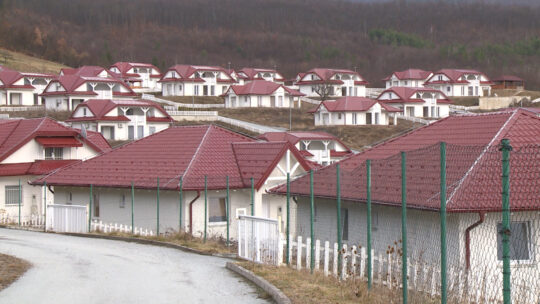
The NATO should enter all the (Balkan) countries, but first of all, it should enter Bosnia because it suffered the most from the conflict (of the 90s), Budimir Loncar, the last Yugoslav Foreign Minister told N1’s Amir Zukic.
“The Dayton Peace Agreement ended the war (in Bosnia), brought peace to the country and said that there must be a united country. At the same time, it legitimised the conflict creators and those responsible for the divisions and war, and it made a contradicting situation: On the one hand the Agreement confirmed the Bosnian borders, but on the other hand, it opened a process of endless distrust,” he said.
In 1992, a bloody war broke out in Bosnia and Herzegovina which ended in 1995 when the Dayton Peace Agreement was signed by the then presidents of Bosnia, Serbia and Croatia. The war left hundreds of thousands of civilians dead and some 1.5 million refugees.
According to Loncar, the changing of borders anywhere in the former Yugoslavia would have a chain reaction and would resemble the opening of Pandora’s box. The best thing for the Serbia-Kosovo dialogue would be if the borders would remain untouched.
“In my opinion, this thing that Kosovo and Serbia are discussing is neither good nor realistic. I don’t think it’s feasible. It would be best if Serbia and Kosovo were to find some other solution which would strengthen the Serb minority’s position in Kosovo. But also the Albanian minority’s position in Serbia should also be strengthened, so they feel safe and equal to others,” he noted.
“Any change of borders would reflect on the rest of the region, especially on Bosnia, which would then threaten all attempts to overcome this distrust in the country.
Zukic mentioned Bosnian Serb leader Milorad Dodik’s announcements of secession of Bosnia's Serb-dominated entity, the Republika Srpska (RS), and the possibility of the creation of the third, Croat-dominated, entity in the country, to which Loncar said that these were things from the past.
“The new realities will lead us in a different direction.”
On the other hand, Zukic noted that there are those who say if Yugoslavia did not survive (as a pluralist country), then Bosnia cannot survive either.
“Yugoslavia has failed. Its demise should be a lesson to Bosnia. The lesson is that democracy should be deeply intertwined with the Bosnian spirit. The country’s not just a community of three different entities (peoples), it’s a society. This society had its humour, literature, language,” Loncar stressed.
He argued that some are creating an artificial difference between the Bosnian, Croatian and Serbian language. To him, this is but an episode to strengthen the distrust in Bosnia.
“I don’t think the break-up of Bosnia is possible. It would be dangerous if this should be the stumbling block between Serbia and Croatia and between Bosnia and other countries. It would be better if Serbia and Croatia would understand that Bosnia is one of the bridges of their cooperation.”
Speaking about Croatia’s attitude towards Bosnia, he said Croatia was wrong not to continue the policy leg by former Croatian presidents Stipe Mesic, Ivo Josipovic and Ivo Sanader.
“This doesn’t mean that Croatian Prime Minister Andrej Plenkovic is not trying to do the same, but revisionist forces have come to surface, and they want to change the past to suit their interests. Croatia should be more assertive. It should be the flag-bearer of the fight for the respect of borders and peaceful resolution of disputes. In theory, Croatia stands for that, but not in practice,” Loncar concluded.



